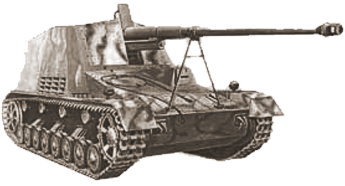September 1938 - The Dismemberment of Czechoslovakia

Following the Third Reich's Anschluss, or political union, with Austria Hitler looked to Czechoslovakia for his next conquest. As a pretext for war the German media, under Goebbels direction, emitted a constant propaganda stream heightening tensions in the area by calling for protecting the German minority in Czechoslovakia. Goebbels agitations focused on the Sudetenland, a Czechoslovakian region running along the German border and home to most of Czechoslovakia's ethnic Germans. Nazi collaborators worked from within the Sudetenland, just as during the Austrian Anschluss, to play up alleged concerns regarding the well fare of German blooded Czechoslovak citizens arguably facing discrimination.
Throughout the volatile summer of 1938 the British Government, led by newly elected Prime Minister Neville Chamberlain, eagerly sought to avoid confronting Hitler over Czechoslovakia. Hitler seized the opportunity provided by British hesitancy and moved aggressively toward war with Czechoslovakia. As summer's days began to wane Hitler's speeches became even more warlike. Hitler ordered German combat units placed on a heightened state of alert and the Wehrmacht frantically prepared for invading Czechoslovakia.
On September 15, 1938 Chamberlain, desiring to avoid war, met with Hitler at Hitler's private retreat in Berchtesgaden. Hitler deceivingly told Chamberlain he coveted "only the Sudetenland". Chamberlain returned to London confident he could appease Hitler and win French and Czech acquiescence for Hitler's "request". On September 18, Chamberlain met with the French Premier, Edouard Daladier, in London. The French anxiously sought to avoid war and, as did the British, incorrectly believed the French army and air force lacked the power to challenge Germany. The Soviet Union possessed the only military willing to intervene, but Romania and Poland, considering Russia's imperialistic history, refused to grant the Red Army military access across their borders.
On September 19, 1938 the British and French asked the Czech government to accept an agreement ceding the Sudetenland to Germany. To his credit, Czech President Eduard Benes firmly turned down this request to give up nearly half of sovereign Czech territory. Moreover, defending Czechoslovakia would be nearly impossible without the Sudetenland - further emboldening Benes to hold onto this critical piece of his nation. The well-equipped Czech army had studded the Sudetenland with a maze of fortifications embedded in rugged defensive terrain. In addition, handing over the Sudetenland would mean crippling the Czechoslovakian economy; via the loss of heavy industry and natural resources located therein. In spite of all this, the Czech cabinet refused to stand with Benes and instead voted for relinquishing the Sudetenland; ostensibly in the interest of peace. On September 21, 1938, the Czech government grudgingly gave notice of acquiescence to the German annexation of the Sudetenland.
Chamberlain flew to meet with Hitler, in Germany at Bad Godesberg on the Rhine River, and seal the deal. Hitler, ever the gambler, switched his terms and pushed for a quicker turnover of the Sudetenland than the Czechs had agreed. Hitler pressed aggressively with little concern over crossing the precipice of war. Hitler's underhanded "bait and switch" not only undercut his ability to negotiate with Britain after the fall of France but meant Chamberlain's shuttle diplomacy and subsequent deal to avoid war nearly fell apart. Britain and Czechoslovakia mobilized for war. On September 26th, Hitler spoke at the Sportspalast in Berlin, arguing in highly inflammatory terms for a decision over the Sudetenland, no matter the consequences for peace.
Hitler expressed readiness for war but the German army in particular was appalled at the prospect of war. Many of Hitler's generals, especially Army Chief of Staff Ludwig Beck, adamantly argued against forcing the issue. Several generals, including most prominently future Army Chief of Staff General Franz Halder, planned a coup in response to Hitler's provocations. Even as war loomed likely, Hitler ignored the protestations from his general staff. Before an afternoon deadline for averting war expired on September 28, however, Hitler received messages from the French Ambassador seeking compromise and a message from Mussolini proposing a conference between Italy, Britain, France and Germany to decide the issue diplomatically.
In Munich on September 29th and 30th the allies and Germany held the conference deciding the Sudetenland's fate. Mussolini proposed a plan to Hitler's satisfaction, Chamberlain and Daladier accepted the plan almost as is. The Munich agreement stipulated German occupation of the Sudetenland by October 10, 1938. Hitler had "acquired" the Sudetenland. In doing so, he annexed approximately 10,000 square miles and 3,500,000 persons, again without firing a shot. The Polish and Hungarians promptly joined Germany at the Czech carcass. The Poles seized the Teschen region of Czechoslovakia on October 2nd, and on November 2nd Hungary swooped in for a strip of southern Slovakia and Ruthenia. The deed to the Poles covered about 400 square miles and 240,000 persons; the deed to Hungary, about 5,000 square miles and 1,000,000 persons. Hitler had won an enormous success; fueling the Third Reich's drive to world war.
by Steven Douglas Mercatante



Post new comment